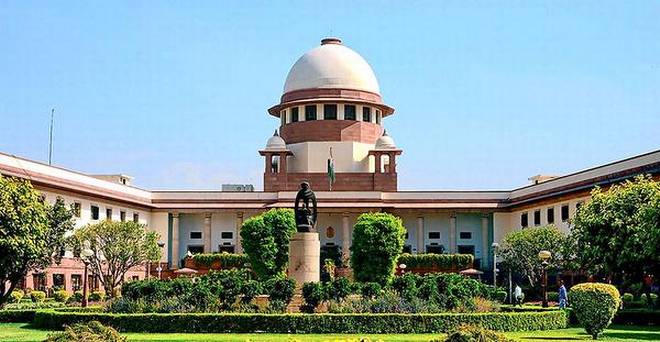No Immunity If MPs, MLAs Take Bribe To Vote Or Make Speech, Says SC Overturning 1998 Narasimha Rao Case Ruling

New Delhi: In a landmark verdict, the Supreme Court on Monday ruled that MPs and MLAs cannot claim immunity for receiving bribes in exchange for delivering a speech or voting.
After withholding its decision on October 5, 2023, a seven-judge constitution bench led by Chief Justice D Y Chandrachud delivered the verdict on the matter.

“An MP/MLA can’t claim immunity from prosecution on a charge of bribery in connection with the vote or speech in the legislative house,” the seven-judge bench said.
“To give any privilege unconnected to the functioning of Parliament or legislature will lead to creating a class that enjoys unchecked exemptions from the operation of law of the land,” mentioned the verdict.
“Elections to Rajya Sabha or to the office of the President/Vice President will also come under the ambit of Constitutional provisions applicable to parliamentary privilege,” the Supreme Court added.
After two days of extensive arguments presented by a battery of lawyers, which included the Attorney General, the Solicitor General, and amicus curiae P S Patwalia, who was assisting the court in the matter, the verdict was reserved.
In 1998, a majority ruling by a five-judge constitution bench in the PV Narasimha Rao versus CBI case stated that parliamentarians are immune from criminal prosecution for speeches made and votes cast within the House, as per Article 105(2) and Article 194(2) of the Constitution.
The matter resurfaced in 2019 before the Supreme Court, with a bench led by the then Chief Justice Ranjan Gogoi overseeing an appeal lodged by Sita Soren, Jharkhand Mukti Morcha (JMM) MLA from Jama and daughter-in-law of party leader Shibu Soren, who was implicated in the JMM bribery scandal. The bench headed by Justice Gogoi referred a pivotal question to a five-judge panel, acknowledging its “wide ramification” and “substantial public importance”.
Sita Soren faced allegations of accepting bribes to support a specific candidate in the 2012 Rajya Sabha election. She argued that the constitutional provision granting immunity from prosecution to lawmakers, which resulted in her father-in-law being acquitted in the JMM bribery scandal, should also apply to her. Sita Soren appealed to the Supreme Court against the decision of the Jharkhand High Court on February 17, 2014, which declined to dismiss the criminal case filed against her.
The three-judge bench had announced its intention to review the Supreme Court’s decision in the high-profile JMM bribery case, which implicated Shibu Soren, a former Jharkhand chief minister and ex-union minister, along with four other party MPs. These MPs were found guilty of accepting bribes to vote against a no-confidence motion that posed a threat to the survival of the P V Narasimha Rao government in 1993. With their backing, the minority Narasimha Rao government managed to survive the no-confidence vote.

Comments are closed.